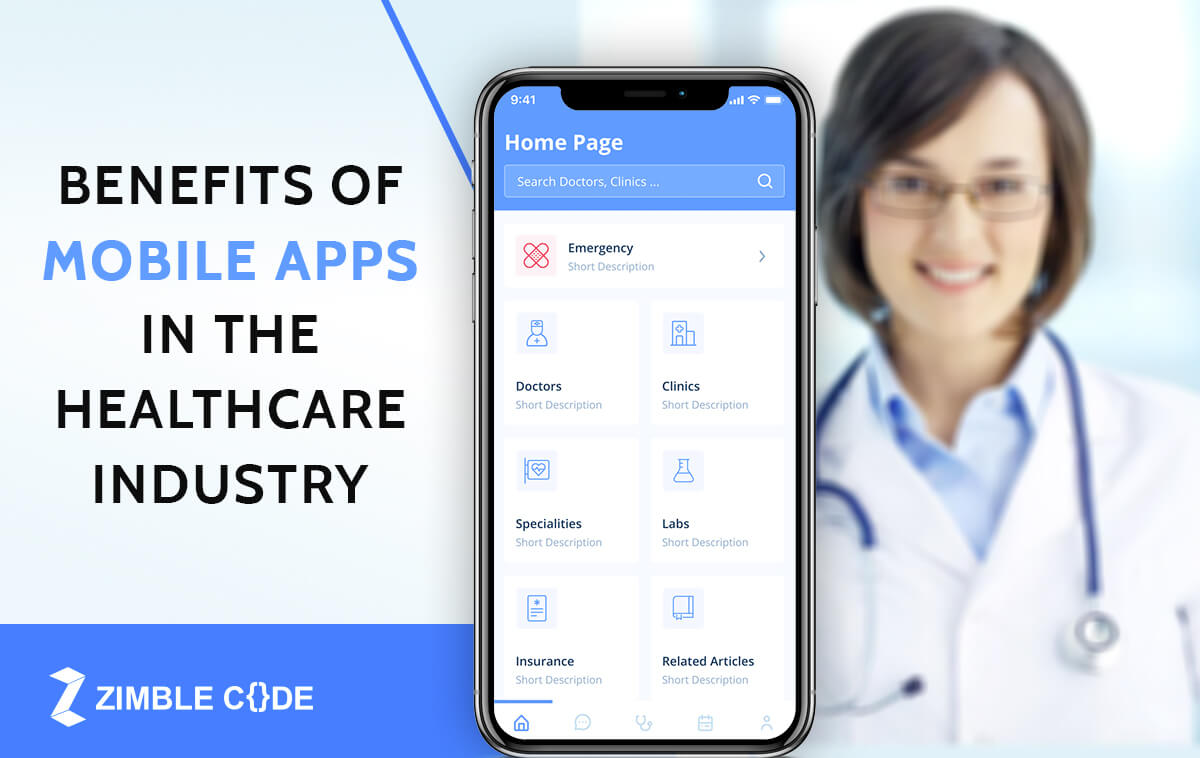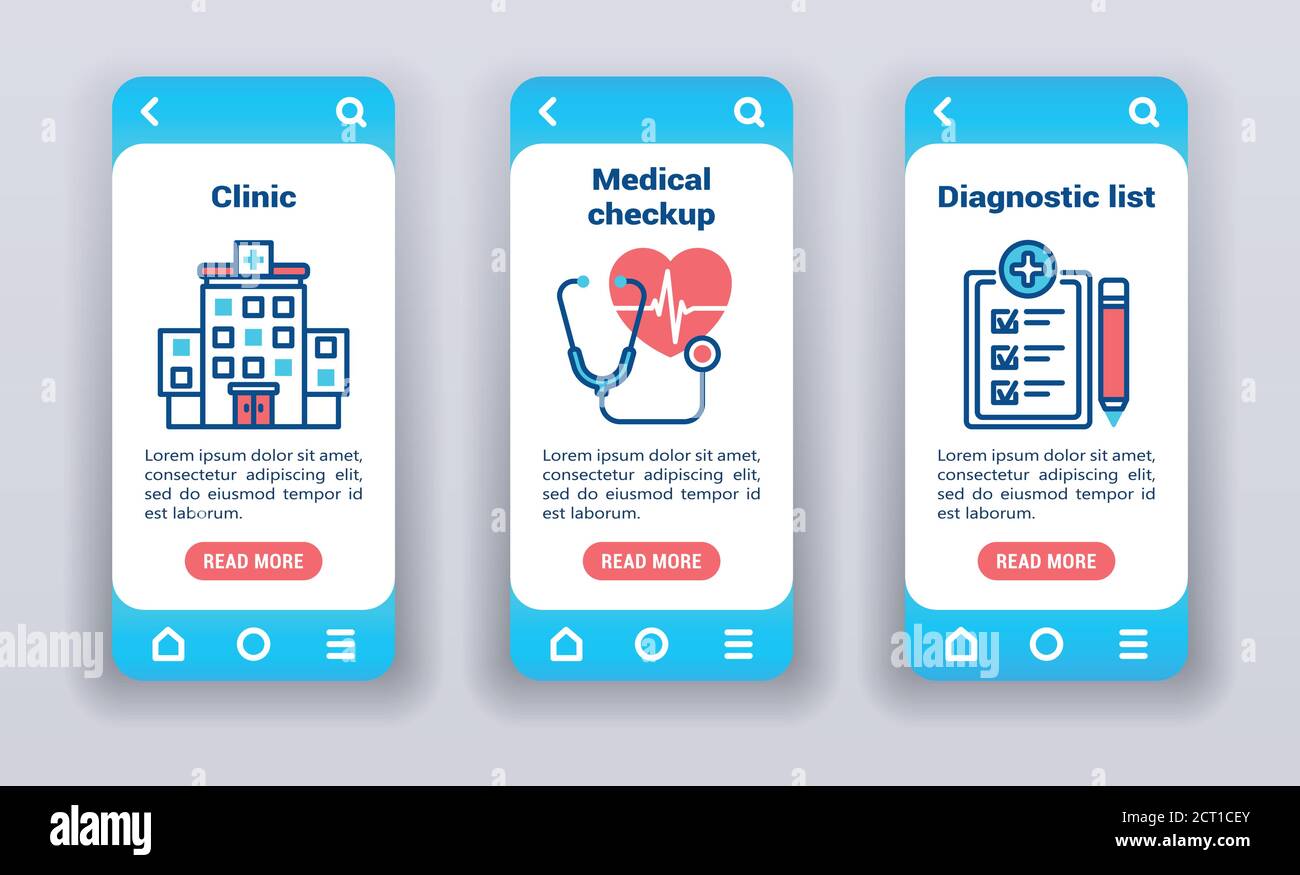The Impact of a Mobile App for Clinics on Process Performance and Patient Complete Satisfaction
The Impact of a Mobile App for Clinics on Process Performance and Patient Complete Satisfaction
Blog Article
The Future of Medical Care: Why Clinics Required a Mobile Application Today
As the health care landscape proceeds to progress, facilities face mounting pressure to adapt to client assumptions for higher comfort and accessibility. The assimilation of mobile applications can offer as a vital method for improving individual involvement and improving operations.
Altering Client Expectations
As the landscape of health care advances, person assumptions are undertaking a considerable makeover. Today's people are increasingly looking for benefit, access, and personalized treatment. With the increase of technology, particularly mobile applications, individuals currently expect a seamless assimilation of health care services right into their day-to-day lives. They want the ability to take care of appointments, access medical documents, and communicate with doctor via their smartphones, showing a change towards an extra positive strategy to health and wellness management.
Furthermore, people are becoming a lot more educated and encouraged, commonly investigating conditions and therapies on-line before assessments. This heightened awareness is coupled with a demand for transparency in healthcare procedures, including cost quotes and treatment alternatives. Because of this, service providers are obliged to adjust by taking on digital tools that enhance the individual experience.
The expectation for timely and reliable interaction has never been greater, with several patients thinking about responsiveness an important component of quality treatment. mobile app for clinics. In this progressing landscape, health care companies have to identify these changing assumptions and leverage mobile applications to cultivate an extra patient-centric strategy, making sure that they not only fulfill but go beyond the standards established by today's educated customers
Enhancing Individual Involvement

Mobile applications assist in communication in between patients and doctor, making it possible for real-time visit organizing, tips for drug adherence, and direct messaging functions. These functionalities not just enhance benefit yet additionally develop a feeling of responsibility amongst patients. Additionally, mobile applications can provide educational web content tailored to individual requirements, aiding patients much better recognize their problems and treatment options.
The integration of gamification elements within medical care applications can likewise inspire clients to involve in healthy behaviors, enhancing positive lifestyle modifications. Eventually, enhancing patient involvement through mobile applications leads to improved wellness outcomes, greater individual fulfillment, and a much more collective medical care experience.
Simplifying Facility Operations
Improving clinic procedures is necessary for enhancing operations efficiency and enhancing client care. The execution of mobile applications can considerably minimize administrative concerns, permitting doctor to concentrate a lot more on client interactions. By automating consultation organizing, individual check-ins, and invoicing procedures, facilities can lessen wait times and boost total operational effectiveness.
Mobile applications also help with real-time access to patient records, allowing medical care experts to make enlightened decisions quickly. This immediacy not just enhances the top quality of care however additionally decreases the possibility of errors related to misplaced or obsoleted information. Leveraging mobile modern technology supports a much more orderly strategy to managing client follow-ups and therapy plans, making certain that no vital steps are neglected.
This permits for prompt replenishment and aids prevent interruptions in individual care due to stock scarcities. By incorporating these capabilities into their daily operations, clinics can develop an extra cohesive and effective environment, eventually leading to boosted person results and contentment.
Improving Communication Channels
Effective interaction is frequently pointed out as a foundation of top quality healthcare distribution. In today's busy medical setting, mobile applications can substantially enhance communication channels between clinics, individuals, and doctor. By incorporating mobile applications into their procedures, clinics can promote real-time communications, making certain that patients receive prompt details regarding their visits, test outcomes, and therapy strategies.
Mobile applications also encourage individuals to interact straight with their healthcare groups via safe and secure messaging attributes. This direct line of communication promotes a sense of interaction and permits prompt explanation of issues, which can bring about far better adherence to therapy methods. Moreover, press notifications can remind patients of upcoming appointments or medicine timetables, lowering no-show rates and improving general health results.
Staying Affordable in Medical Care
In a rapidly advancing healthcare landscape, organizations need to focus on development and adaptability to maintain an affordable side. The combination of mobile applications into healthcare solutions is no longer optional; it is necessary for facilities intending to enhance individual interaction, simplify operations, and enhance overall service delivery.
As people significantly count on electronic platforms for wellness administration, clinics that fail to embrace mobile modern technology threat falling behind. A well-designed mobile application can supply features such as appointment scheduling, telemedicine appointments, and access to medical records, offering individuals with ease and cultivating loyalty.

Rivals are additionally buying mobile services, so staying in advance calls for constant enhancement and staying educated concerning technological improvements. Facilities should not only execute mobile applications yet also involve in routine updates and improvements. Eventually, the successful integration of mobile technology will identify forward-thinking medical care organizations and set the criteria for patient-centric care in a digital globe.
Final Thought
To conclude, the assimilation of mobile applications in clinics is critical to attend to the developing landscape of patient expectations. By boosting individual involvement, simplifying procedures, and boosting interaction channels, clinics can significantly improve health and wellness end results. In addition, the fostering of mobile innovation positions clinics to stay affordable in a significantly digital healthcare atmosphere. Inevitably, the calculated application websites of mobile apps stands for a crucial action towards supplying obtainable and tailored medical care, consequently fulfilling he has a good point the needs these days's equipped individuals.
Eventually, boosting person involvement via mobile applications leads to boosted health end results, higher patient fulfillment, and an extra joint medical care experience.Mobile apps likewise assist in real-time accessibility to patient documents, allowing healthcare professionals to make enlightened choices swiftly. In today's hectic medical atmosphere, mobile applications can dramatically boost communication channels between facilities, people, and health care service providers.Mobile apps additionally equip people to interact straight with their healthcare groups with safe messaging functions. Ultimately, the tactical application of mobile applications represents an essential action toward supplying personalized and available medical care, thus meeting the demands of today's empowered patients.
Report this page